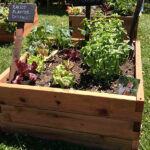Have you ever considered raising quail at home? These small, delightful birds are not only a joy to have around but also a fantastic addition to any homestead. Whether you are an experienced homesteader or a beginner looking to start your journey, quail can be a perfect choice. In this article, we’ll explore everything you need to know about raising quail at home, from setting up their habitat to understanding their needs and benefits.

Why Choose Quail?
Quail are becoming increasingly popular among homesteaders and urban farmers. Their small size and easy maintenance make them ideal for those with limited space. Unlike chickens, quail require less space and are relatively quieter, making them a perfect choice for urban settings. Additionally, quail are prolific layers, providing a steady supply of eggs that are rich in nutrients.
Setting Up the Perfect Habitat
Choosing the Right Space
When raising quail at home, selecting the right space is crucial. Quail can be housed in a small coop or even a converted rabbit hutch. Ensure the space is well-ventilated and safe from predators. A secure environment will keep your quail healthy and stress-free.
Bedding and Cleanliness
Proper bedding is essential for quail’s comfort. Use materials like straw or wood shavings that are absorbent and easy to clean. Regular cleaning is vital to prevent diseases, so make it a part of your routine.
Nutritional Needs of Quail
Feeding the Right Diet
Quail require a balanced diet to thrive. A commercial game bird feed is a good choice, as it provides all the essential nutrients. You can supplement their diet with fresh greens and occasional treats like mealworms.
Providing Clean Water
Always ensure that your quail have access to fresh, clean water. A small water dispenser with a narrow opening will prevent contamination and keep the water clean.
Breeding Quail
Understanding the Breeding Process
Breeding quail at home can be a rewarding experience. Quail reach maturity quickly, and with the right conditions, they can start laying eggs as early as six weeks old. To encourage breeding, maintain a comfortable environment and provide ample space for the quail to move around.
Incubation and Hatching
Incubating quail eggs requires a stable temperature and humidity level. An incubator can help maintain these conditions. Once the eggs hatch, provide a warm brooder for the chicks until they are ready to join the adult quail.
Benefits of Raising Quail
Fresh Eggs
Quail eggs are a delightful addition to your diet. They are rich in protein and nutrients, making them a healthy choice. With regular laying, you’ll have a constant supply of fresh eggs.
Meat Production
Beyond eggs, quail can also be raised for meat. Their delicate flavor and tender texture are appreciated by many, and they can be a valuable source of protein for your family.
Challenges and Solutions
Dealing with Predators
Predators can be a concern when raising quail at home. Ensure your quail’s enclosure is secure and check regularly for any signs of breaches. Using hardware cloth instead of chicken wire can provide added security.
Health Concerns
Like any animal, quail can face health challenges. Regular monitoring for signs of illness, such as lethargy or changes in appearance, can help you catch problems early. Consulting with a veterinarian who has experience with birds can provide additional guidance.
Conclusion
Raising quail at home is a rewarding endeavor that offers numerous benefits. From fresh eggs to tasty meat, quail can enhance your homesteading experience. With the right care and environment, these charming birds can thrive in your backyard.

FAQ
What do quail eat?
Quail require a balanced diet, primarily consisting of a commercial game bird feed, supplemented with fresh greens and occasional treats like mealworms.
How much space do quail need?
Quail require minimal space compared to chickens. A small coop or a converted rabbit hutch can comfortably house a few quail.
Are quail noisy?
Quail are relatively quieter than chickens, making them suitable for urban settings where noise may be a concern.
For more insights on starting your homestead journey, you might find this guide on beginning homesteading helpful.
To delve deeper into homesteading, you can check homesteading at home, or learn about root cellar storage and starting a garden at 15 Acre Homestead.






